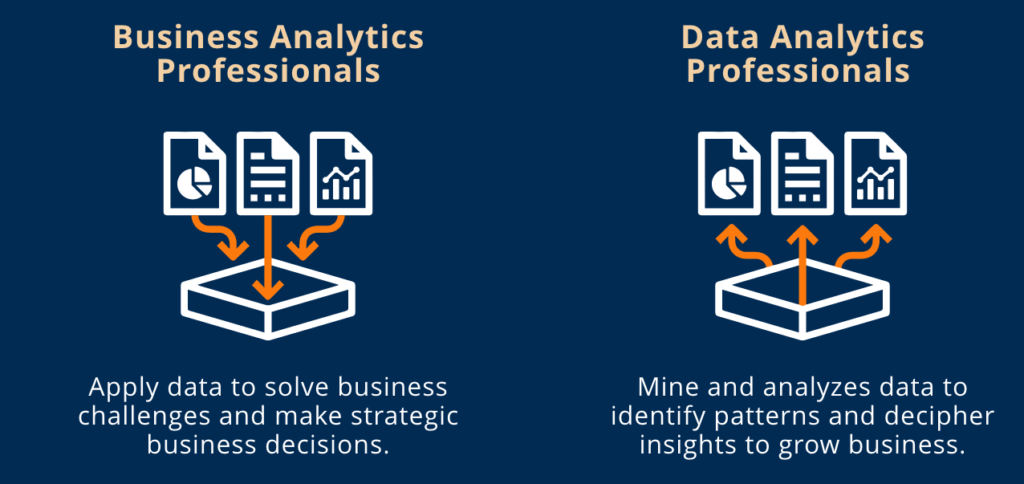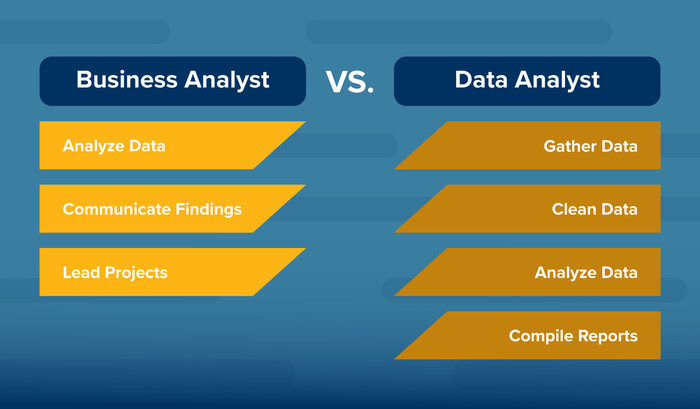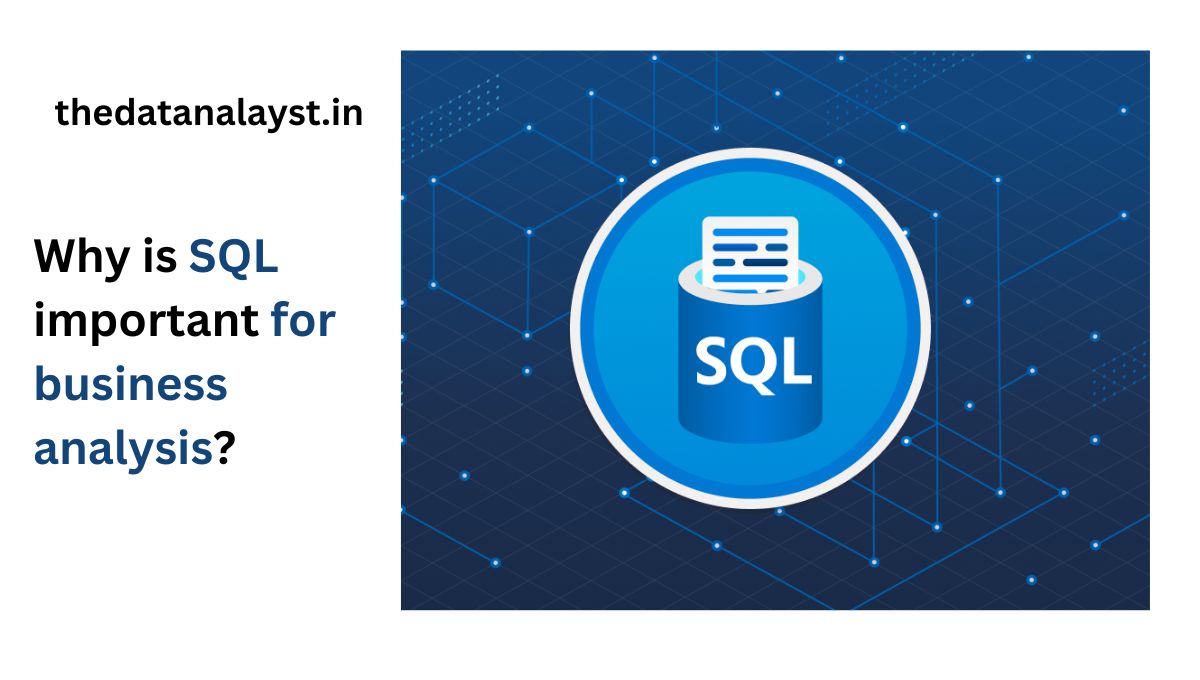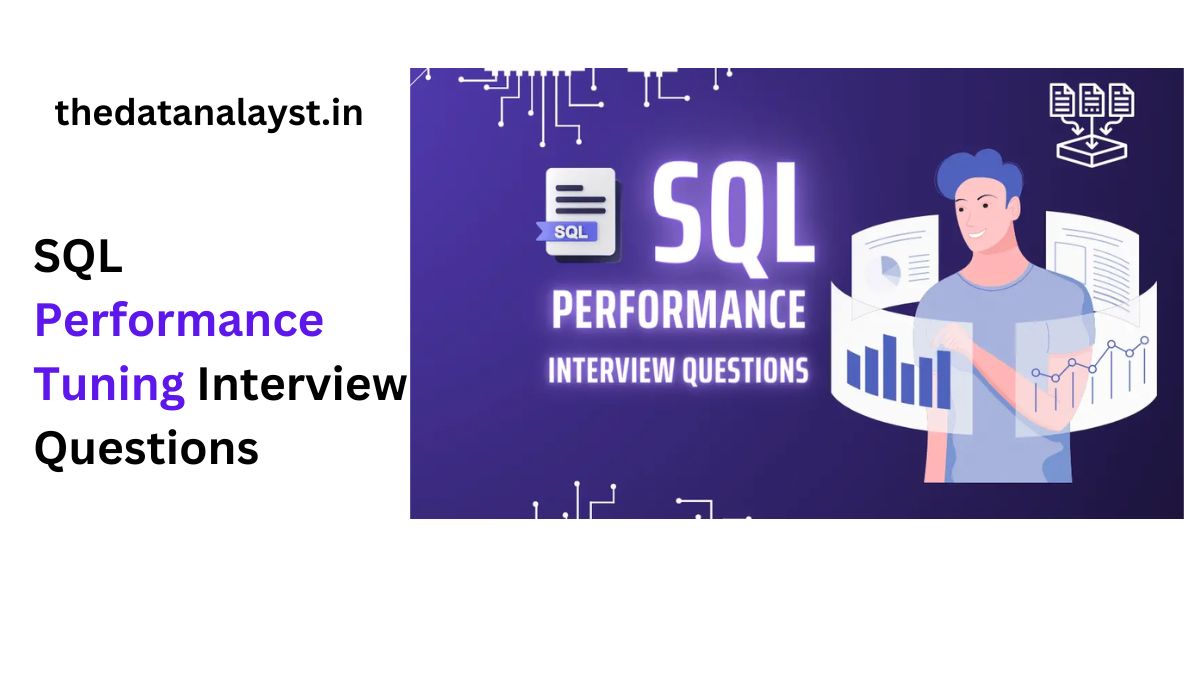Are you considering a career which deals with data and helps improve business strategy? If so, you’ve probably come across the terms “business analyst” and “data analyst.”
Let us discuss Business Analyst vs Data Analyst: what’s the difference between them? Which one should you choose as career?

Business Analyst vs Data Analyst
What is a Business Analyst?
A Business Analyst focuses on understanding business processes and identifying areas for improvement.
They act as a bridge between the business team and the technical team. BAs ensure that the company’s objectives align with its business strategies and processes and he does that with the help of insights he generates from data.
Key Responsibilities of a Business Analyst:
- Understanding Business Needs: They work closely with stakeholders to gather and analyze requirements.
- Process Improvement: They identify inefficient processes and suggest improvements.
- Data-Driven Decisions: Though they work with data, their focus is on how the data impacts business strategies.
- Communicating Findings: They often create reports, visualizations, and presentations for non-technical stakeholders.
What is a Data Analyst?
A Data Analyst is more technical, focusing on collecting, processing, and interpreting complex datasets. Their primary goal is to discover insights that help businesses make informed decision.
They specialize in extracting insights from large datasets to inform decision-making. Their focus is on uncovering patterns, trends, and anomalies that can be used to optimize business operations
Key Responsibilities of a Data Analyst:
- Data Collection and Cleaning: They extract data from multiple sources and clean and remove errors to ensure accuracy.
- Analyzing Data: Using tools like SQL, Python, Excel, and Power BI, DAs analyze data to uncover trends and patterns.
- Generating Reports: They provide reports that include charts, graphs, and statistics to explain their findings.
- Predictive Analysis: They use historical data to make forecasts and provide actionable insights.

Data Analyst may even transition into Data Science roles in future which is more tech centered and advanced role in which you also have to make future prediction based on data . You can check Data Analyst vs Data Scientist Difference.
Skill Sets: Business Analyst vs Data Analyst
Business Analyst Skills:
- Communication: The ability to communicate complex concepts to non-technical teams.
- Problem-Solving: Finding practical solutions to business problems.
- Project Management: Coordinating and managing projects.
- Basic Data Understanding: Familiarity with data concepts to bridge the gap between the business and data teams.
Data Analyst Skills:
- Technical Proficiency: Expertise in SQL, Python, R, and data visualization tools like Power BI or Tableau.
- Mathematical and Statistical Skills: A strong understanding of statistics to interpret data accurately.
- Data Management: The ability to work with large datasets and ensure they’re clean and usable.
- Attention to Detail: Analyzing data requires precision to avoid errors in interpretation.

Which Career Path is Right for You Business Analyst vs Data Analyst ?
The choice between a business analyst and a data analyst often depends on your personal interests and skill set. Here are some skills and interests for your reference.
You Might Enjoy Being a Business Analyst If:
- You’re a strong communicator and love interacting with people across various teams.
- You enjoy problem-solving but prefer to focus on business processes and strategies.
- You’re comfortable with some data analysis but don’t want it to be your main focus.
You Might Enjoy Being a Data Analyst If:
- You love working with data and enjoy finding patterns and insights that drive decisions.
- You have a strong technical background and enjoy using tools like SQL and Python.
- You prefer working behind the scenes with data rather than in front of stakeholders.
Related – How to become a Data Analyst With no Experience
Salary Comparison: Business Analyst vs Data Analyst Salary
While salaries vary based on location and experience, both roles offer lucrative compensation but here are the average salary based on the data from Indeed and Glassdoor.
- Business Analyst Average Salary: $70,000 to $90,000 per year.
- Data Analyst Average Salary: $60,000 to $85,000 per year.
Related : Google Cloud Data Analyst Certificate
Conclusion: Business Analyst or Data Analyst?
Both Business Analysts and Data Analysts play critical roles in shaping the future of a business. If you’re more business-oriented and enjoy communication, a BA role might suit you. If you love diving into data and solving technical problems, the DA role could be your calling.
Can Business Analysts transition to Data Analysts?
Yes! With some additional technical training, many BAs can transition into a DA role, especially if they develop strong data skills.
Can Data Analysts become Business Analysts?
Absolutely! You can transition to Data Analyst by developing their business strategy and communication skills
Which role has more growth opportunities?
Both roles are in high demand, but with the growing importance of data, Data Analysts may have a slight edge in terms of technical advancement.


One thought on “Business Analyst vs Data Analyst: Which Path to Choose In 2025 ?”